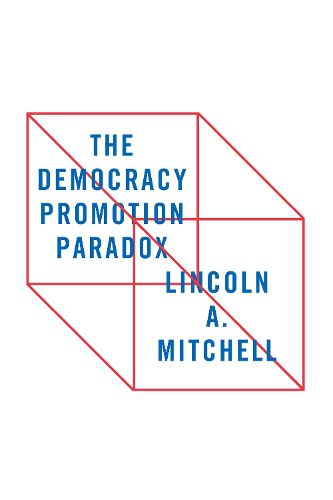Readings Newsletter
Become a Readings Member to make your shopping experience even easier.
Sign in or sign up for free!
You’re not far away from qualifying for FREE standard shipping within Australia
You’ve qualified for FREE standard shipping within Australia
The cart is loading…






Explore the numerous paradoxes at the heart of the theory and practice of democracy promotion. The Democracy Promotion Paradox raises difficult but critically important issues by probing the numerous inconsistencies and paradoxes that lie at the heart of the theory and practice of democracy promotion. For example, the United States frequently crafts policies to promote democracy that rely on cooperation with undemocratic governments; democracy promoters view their work as minor yet also of critical importance to the United States and the countries where they work; and many who work in the field of democracy promotion have an incomplete understanding of democracy. Similarly, in the domestic political context, both left and right critiques of democracy promotion are internally inconsistent. Lincoln A. Mitchell provides an overview of the origins of U.S. democracy promotion, analyzes its development and evolution over the last decades, and discusses how it came to be an unquestioned assumption at the core of U.S. foreign policy. His discussion of the bureaucratic logic that underlies democracy promotion offers important insights into how it can be adapted to remain effective.Mitchell also examines the future of democracy promotion in the context of evolving U.S. domestic policy and politics and in a changed global environment in which the United States is no longer the hegemon.
$9.00 standard shipping within Australia
FREE standard shipping within Australia for orders over $100.00
Express & International shipping calculated at checkout
Explore the numerous paradoxes at the heart of the theory and practice of democracy promotion. The Democracy Promotion Paradox raises difficult but critically important issues by probing the numerous inconsistencies and paradoxes that lie at the heart of the theory and practice of democracy promotion. For example, the United States frequently crafts policies to promote democracy that rely on cooperation with undemocratic governments; democracy promoters view their work as minor yet also of critical importance to the United States and the countries where they work; and many who work in the field of democracy promotion have an incomplete understanding of democracy. Similarly, in the domestic political context, both left and right critiques of democracy promotion are internally inconsistent. Lincoln A. Mitchell provides an overview of the origins of U.S. democracy promotion, analyzes its development and evolution over the last decades, and discusses how it came to be an unquestioned assumption at the core of U.S. foreign policy. His discussion of the bureaucratic logic that underlies democracy promotion offers important insights into how it can be adapted to remain effective.Mitchell also examines the future of democracy promotion in the context of evolving U.S. domestic policy and politics and in a changed global environment in which the United States is no longer the hegemon.